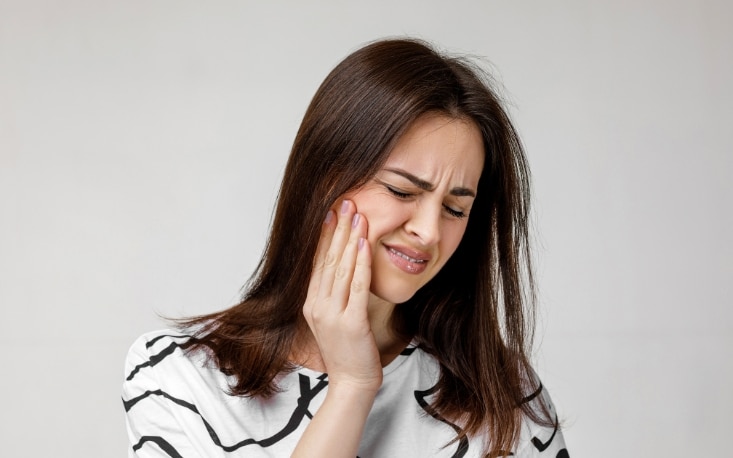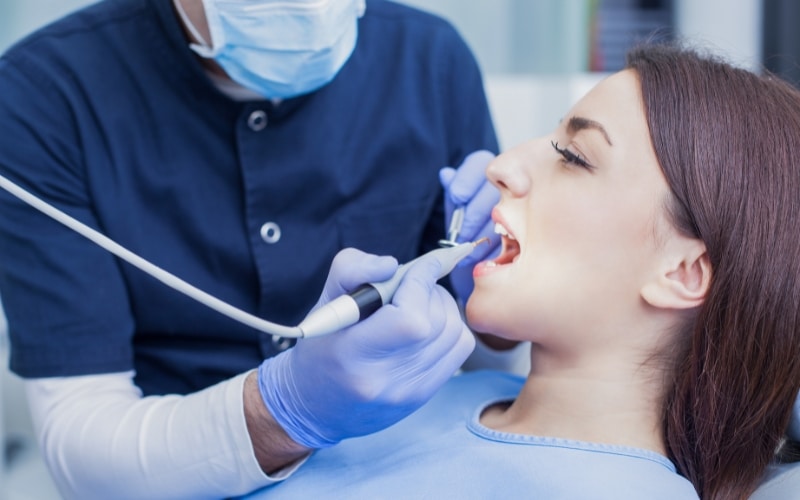ONLINE SCHEDULING AND VIRTUAL CONSULTS AVAILABLE

What To Expect During An Emergency Dental Visit: A Patient’s Guide

Emergencies can strike at any moment, and dental issues are no exception. A sudden toothache, a knocked-out tooth, or any unexpected oral problem can leave you scrambling for immediate assistance. This is where emergency dental visits play a crucial role in preserving your oral health and relieving pain. In this blog, we’ll talk about the things you should expect from an emergency dental visit, from the initial call to the aftercare. We’ll also focus on how an emergency dentist in Plantation, FL, can help you get rid of dental emergencies effectively.
Understanding the Need for Emergency Dental Care
Dental emergencies can be distressing experiences that require immediate attention from a qualified professional. It’s crucial to discern between routine dental issues and emergencies to ensure that you seek the appropriate care. Dental emergencies encompass a spectrum of urgent situations, ranging from sudden and severe pain to traumatic injuries affecting the teeth, gums, or surrounding oral structures. Common scenarios include:
Severe Toothache: Intense and persistent tooth pain that may be indicative of an underlying infection or damage.
Knocked-Out Tooth: Swift action is essential in trying to save a knocked-out tooth. The chances of successful re-implantation decrease significantly with time.
Cracked or Fractured Tooth: Trauma or biting into something hard can lead to a cracked or fractured tooth, causing immense pain and potential structural damage.
Lost Dental Restoration: If a filling or crown falls out, it can expose sensitive tooth tissue and requires prompt attention to prevent further complications.
Making the Call
When faced with a dental emergency, the urgency of obtaining professional assistance cannot be overstated. Taking swift action by making the right call is the initial crucial step towards receiving the timely care necessary to address the issue effectively.
Identifying a Dental Emergency
The first challenge is recognizing when a dental situation constitutes an emergency. Severe pain, uncontrolled bleeding, or a knocked-out tooth are clear indicators. However, even if the situation seems less urgent, it’s better to err on the side of caution. Conditions such as a cracked tooth or a lost filling may escalate if left unattended, warranting immediate attention.
Locating Emergency Dental Services
Many dental offices have specific protocols in place for emergencies. It’s essential to be aware of the contact details for emergency dental services in your area. This information is often available on the dental clinic’s website or through a quick online search. Some clinics may even have a dedicated emergency hotline for swift assistance.
Providing Detailed Information
When you make the call, it’s crucial to provide detailed information about your situation. Clearly articulate the nature of the emergency, the level of pain you’re experiencing, and any relevant details such as trauma or existing dental conditions. This information helps the dental team prepare for your arrival, ensuring that they have the necessary resources and personnel ready to address your specific needs.
Immediate First Aid
In the midst of a dental emergency, providing immediate first aid can make a substantial difference in managing pain, preventing further damage, and improving the overall outcome of the situation. The following are some of the remedial measures that you can undertake when a dental emergency strikes:
Rinsing Your Mouth: Begin by gently rinsing your mouth with warm water. This helps cleanse the area and remove debris. Avoid using hot or cold water, as extreme temperatures may exacerbate sensitivity. Swish the water around your mouth and then spit it out gently.
Managing Toothaches: If you’re experiencing a severe toothache, floss gently to ensure there is no lodged debris causing discomfort. Over-the-counter pain relievers, following the recommended dosage, can provide temporary relief. Applying a cold compress to the affected area can also help numb the pain and reduce swelling.
Dealing with a Knocked-Out Tooth: If a tooth has been knocked out, time is of the essence. Hold the tooth by the crown (not the root), rinse it gently with water if it’s dirty, and attempt to reinsert it into the socket if possible. If reinsertion isn’t feasible, place the tooth in a container of milk or your saliva to keep it moist.
Avoiding Self-Treatment for Severe Injuries: While these first aid measures are valuable for managing certain dental emergencies, it’s crucial to avoid attempting more extensive procedures on your own. For instance, only attempt to pull out a tooth or perform complex dental work with professional guidance. Doing so can exacerbate the issue and complicate subsequent treatment.
Pain Management
One of the primary concerns during a dental emergency is often the intense pain associated with various conditions. Emergency dentists in Plantation, FL, prioritize pain relief as a crucial aspect of their immediate care. Effective pain management not only enhances your comfort but also ensures a more focused and successful treatment. Here’s a detailed look at the strategies emergency dentists employ for pain relief:
Assessment of Pain Intensity: This evaluation helps them tailor a pain management strategy suited to your specific situation. Be open and detailed about your pain experience, including its duration, triggers, and any factors that alleviate or exacerbate it.
Prescription Pain Medications: Emergency dentists may prescribe stronger pain medications to provide immediate relief. These could include prescription-strength NSAIDs (non-steroidal anti-inflammatory drugs) or, in severe cases, opioid medications.
Over-the-Counter Pain Relievers: For milder pain or as a supplemental measure, emergency dentists often recommend over-the-counter pain relievers. Common options include ibuprofen or acetaminophen. These medications can help manage pain and reduce inflammation. Again, adherence to recommended dosages is essential to avoid complications.
Aftercare Instructions
After receiving prompt and effective emergency dental treatment, proper aftercare is crucial for ensuring a smooth recovery and preventing any potential complications. The dentist will provide you with detailed aftercare instructions tailored to your specific situation.
Oral Hygiene Practices:
Maintain meticulous oral hygiene to prevent infections and promote healing. The dentist will guide you on how to brush and floss around the treated area without causing additional trauma. Use a soft-bristled toothbrush to gently clean your teeth, avoiding the surgical site if applicable.
Dietary Restrictions:
Depending on the nature of the emergency dental procedure, you may receive dietary restrictions. For example, if you’ve had a tooth extraction or oral surgery, you might be advised to stick to soft foods for a certain period. Avoiding hard, crunchy, or sticky foods can prevent damage to the treated area and expedite healing.
Medication Guidelines:
If the dentist has prescribed medications for pain relief or to prevent infection, ensure that you take them as directed. Follow the recommended dosage and complete the entire course of antibiotics if prescribed. If you experience any adverse reactions, contact the dental office promptly for guidance.
Follow-Up Appointments:
Some dental emergencies may require follow-up appointments to monitor the healing process and make any necessary adjustments. Attend these appointments as scheduled to allow the dentist to assess your progress, address any concerns, and ensure that your recovery is on track.
Facing a dental emergency can be daunting, but knowing what to expect during an emergency dental visit can provide reassurance. Quick action, effective communication with the dental team, and following post-treatment instructions are key components of a successful resolution to your dental crisis. Remember, an emergency dentist in Plantation, FL, is there to help you regain control of your oral health when unexpected issues arise. If you experience a dental emergency, feel free to call us at My Dentist for Life of Plantation- We’re here to help!





